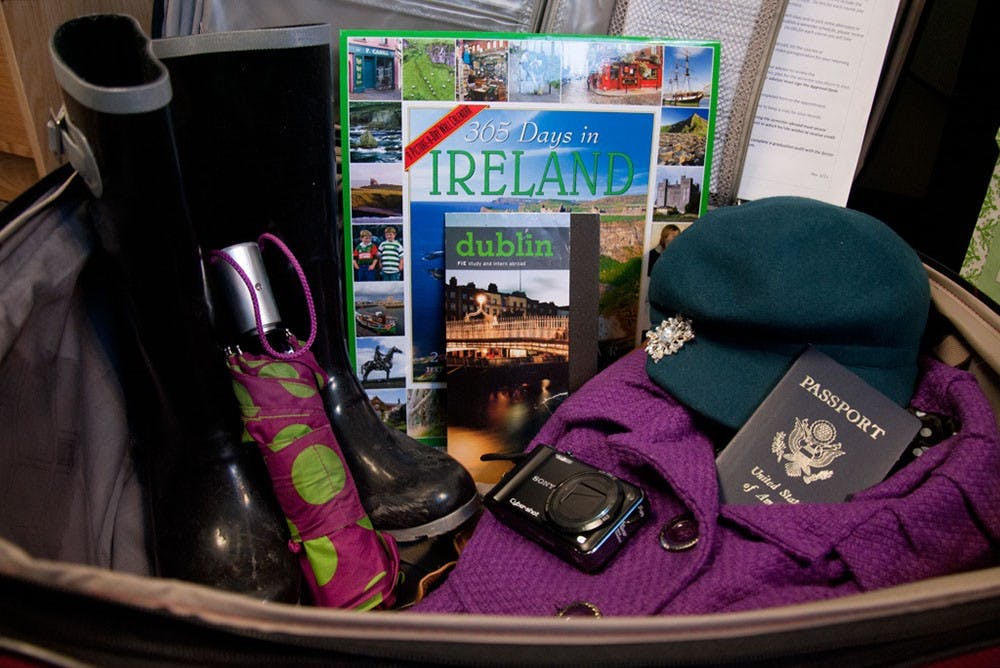Many students choose to study abroad during Winter Term or a semester during their time at Elon and although it's an exciting time for students, they often have questions about the atmosphere and environment of their destination. Fortunately, students who have studied abroad before can offer departing students advice on enhancing their experiences in different countries.
Senior Sarah Oldham studied in India Winter Term of her sophomore year and Dublin the spring semester of her junior year. Before departing for these programs, she spoke with upperclassmen who had also been to these places and read travel books on her destinations. Caitlin Hickey, another senior who traveled to Peru during Winter Term her sophomore year and St. Andrews, Scotland, last spring, also read travel guides before leaving which she said helped her.
A different country often means new language, but senior Shanna Van Beek wasn't bothered when she spent a semester in Cairo. Before her semesters abroad, she took two semesters of Arabic and had previously spent time in Cairo and Alexandria, which made her second time in Cairo easier, she said.
"Having been to Egypt once before, I felt somewhat prepared for the climate, busyness and sounds," Van Beek said. "The most important preparation for me was advice I had heard from students who had studied abroad in the Middle East and from friends living in Egypt: be flexible."
Aisha Mitchell, a senior who spent last fall in Beijing, also had knowledge of Mandarin, the language spoken in her destination, which she said was helpful in getting around. But for programs in areas like India, Dublin and St. Andrews, there was no language barrier since English was the primary language.
Michael Bergin, a 2011 alumnus who went to Florence his junior year, traveled with bus2alps, a company that plans trips around Europe for students, and is going back to Florence to work with the company. Bergin advises students to take advantage of trips in and around their destinations from companies like bus2alps that offer discounts for groups.
"You want to spend as much time in the place you're in but you don't want to stop yourself from traveling," he said. "One of the main reasons people go abroad is they want to get out there and see a lot of places. Don't be afraid to spend money on taking day trips."
Van Beek and Mitchell said the main challenges they faced in emerged from living in a place different from what they were used to. The food, language and overall pace weren't the same as that of the United States and it was exhausting at times, they said.
"I was viewed differently than I am in North Carolina, mainly because there are plenty of blond Americans at Elon and not so many in Egypt," Van Beek said. "The littlest differences add up and because you're not expecting it, they can wear you down."
One challenge Oldham faced in Ireland was prioritizing her time. She found it difficult to immerse herself into the culture while also living in the moment. Students often want to experience everything in their time abroad but can miss out on other opportunities, Oldham said. She recommends students think about what they want to get out of their experience before departure.
Students can take care of logistical things like currency and health and safety by researching these aspects and others related to their destination, said Heidi White, Isabella Cannon International Centre director of study abroad. Foreign currency can be ordered at the student's bank and students can stay healthy and safe by getting the proper immunization and prescriptions and being aware of their surroundings.
A month or semester abroad can be daunting for some but once students are comfortable in the area, the experience is worth it, according to Van Beek.
"Be flexible, patient and observant," she said. "The nuances of a culture might, at first, be entirely frustrating. Eventually, you grow accustomed to the nuances and may even prefer some of the local traditions and practices to your own"


